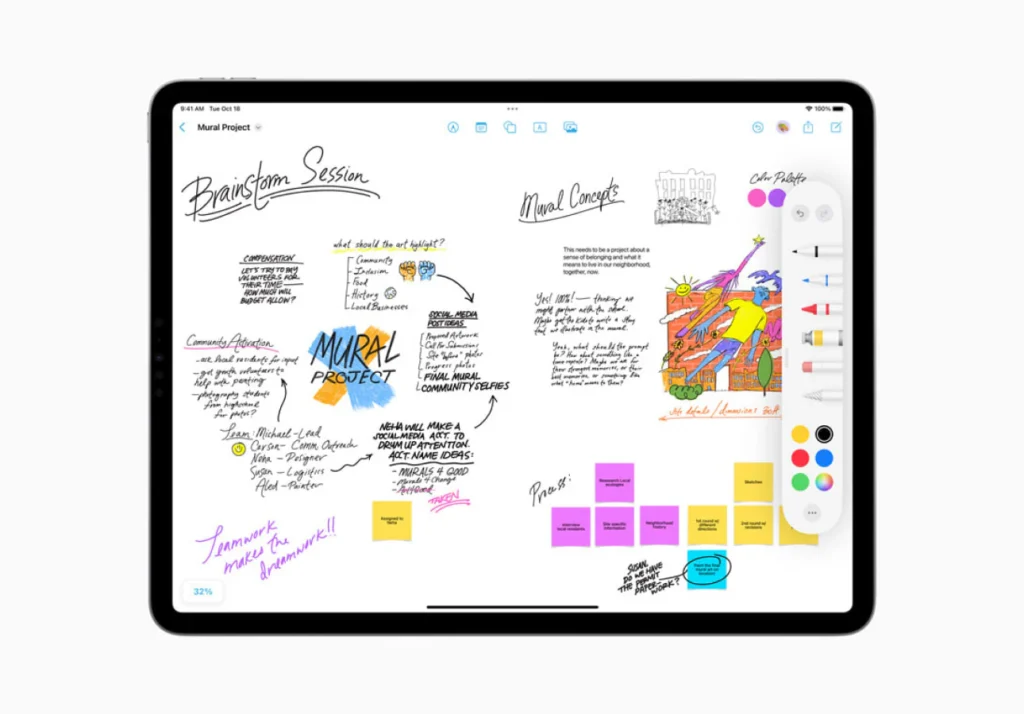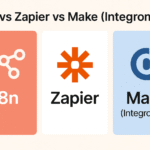The Best Fluffy Pancakes recipe you will fall in love with. Full of tips and tricks to help you make the best pancakes.

Smarter tools for busier lives.
In today’s fast-paced professional world, our brains are constantly buzzing with ideas, tasks, meeting notes, and crucial information. Relying on scattered sticky notes 📝, random scraps of paper, or even just memory is a recipe for missed deadlines and forgotten brilliance. This is where digital notetaking apps come in – they’re not just for students anymore. For busy professionals, remote workers, and creators, a good notetaking app is a central hub for everything from brainstorming sessions to client feedback, ensuring no vital detail slips through the cracks.
But with so many options available, how do you pick the right one? 🤔 This guide will walk you through the top contenders, highlighting their strengths so you can choose the perfect digital companion to elevate your productivity and peace of mind.
“If productivity is your focus, also check our AI tools guide for busy professionals.”
Why Digital Notetaking is a Game-Changer 🚀
Before we dive into the apps, let’s quickly recap why ditching paper (or at least supplementing it heavily) for digital notes is a smart move:
- Searchability: Find any note in seconds with a quick search, no more flipping through notebooks. 🔍
- Organization: Create notebooks, tags, and folders to keep everything neatly categorized. 🗂️
- Accessibility: Access your notes from any device, anywhere – your phone, tablet, laptop. 📱💻
- Multimedia Integration: Add images, audio recordings, PDFs, and even videos to your notes. 📸🎤
- Collaboration: Share notes and collaborate with colleagues on projects seamlessly. 🤝
- Security: Protect sensitive information with password protection or encryption. 🔒
Top Digital Notetaking Apps for Professionals
We’ve hand-picked the best notetaking apps that offer robust features for professional use.
1. Evernote: The Venerable All-Rounder 🐘
Evernote has been a long-standing favorite for a reason. It’s incredibly versatile, acting as a digital brain for all kinds of information.
- Key Features for Professionals: Web clipper (save articles, recipes, entire web pages), powerful search (including text in images), cross-device syncing, note tagging and notebooks, diverse note types (text, audio, handwritten, sketches).
- Best For: Anyone who needs a comprehensive solution to capture and organize virtually any type of information, from meeting notes to project research.
- Potential Drawback: The free tier is quite limited, and the premium subscription can feel a bit pricey for some.
- Check out Evernote Premium here!
2. Notion: The Flexible Workspace for Everything 🧱
Notion isn’t just a notetaking app; it’s an all-in-one workspace that can be customized for project management, databases, wikis, and yes, powerful notetaking.
- Key Features for Professionals: Block-based editor for ultimate flexibility, linked databases, customizable templates for various use cases (meeting notes, content calendars, CRM), excellent collaboration features, strong markdown support.
- Best For: Teams and individuals who want a highly customizable system that can evolve beyond simple notes into a comprehensive knowledge base or project hub.
- Potential Drawback: The sheer flexibility can be overwhelming for beginners; there’s a learning curve to truly harness its power.
- Explore Notion’s capabilities for your team!
3. Microsoft OneNote: The Office Suite Powerhouse 📝 (with a green touch!)
If you’re already deeply embedded in the Microsoft ecosystem, OneNote is a no-brainer. It’s free and integrates seamlessly with other Microsoft Office applications.
- Key Features for Professionals: Freeform canvas (place text, images, and drawings anywhere), deep integration with Word, Excel, Outlook, and Teams, robust search, excellent for stylus input (Surface Pro users rejoice!), password-protected sections.
- Best For: Microsoft 365 subscribers, students, and professionals who prefer a more unstructured, digital notebook feel.
- Potential Drawback: While accessible everywhere, its mobile apps can sometimes feel less polished than desktop versions.
- Download Microsoft OneNote for free!
Bonus Tool: Love pen and paper but still want cloud backup? Check out the Rocketbook Smart Notebook.
4. Simplenote: The Minimalist’s Dream ✨
Sometimes, you just need a place to jot down quick thoughts without any fuss. Simplenote excels at exactly that.
- Key Features for Professionals: Blazing fast, markdown support, cross-platform syncing, tagging for organization, note history (revert to previous versions).
- Best For: Those who prioritize speed and simplicity for text-based notes, quick ideas, and checklists. It’s fantastic for capturing thoughts on the go without distractions.
- Potential Drawback: Lacks advanced features like multimedia embedding, web clipping, or rich text formatting. It’s truly simple.
- Get Simplenote for quick notes!
5. Obsidian: The Knowledge Graph Builder 🕸️
Obsidian is a unique beast, favored by “digital gardeners” and knowledge workers. It stores notes as plain text files on your local device and focuses on creating connections between your ideas.
- Key Features for Professionals: Markdown-based, local file storage (privacy!), powerful internal linking and backlinking (creating a “second brain”), graph view to visualize connections, vast plugin ecosystem for customization.
- Best For: Researchers, writers, and deep thinkers who want to build a personal knowledge base and see the relationships between their ideas.
- Potential Drawback: Requires a bit more technical comfort to set up and manage; syncing across devices requires third-party services or Obsidian Sync.
- Learn more about building your knowledge graph with Obsidian!
Summary Comparison Table: Finding Your Perfect Fit 📊
Here’s a quick overview to help you compare the top contenders at a glance:
| App | Best For | Key Strengths | Potential Drawback(s) | Price Model |
| Evernote | Comprehensive capture & organization | Web clipper, powerful search, versatile note types | Limited free tier, premium can be pricey | Freemium |
| Notion | Highly customizable workspace & knowledge base | Block-based editor, databases, extensive customization | Steep learning curve for full potential | Freemium |
| OneNote | Microsoft 365 users, freeform notes | Free, deep Office integration, freeform canvas | Mobile app polish, less structured than others | Free (with MS account) |
| Simplenote | Fast, minimalist text notes | Speed, simplicity, markdown, cross-platform syncing | Lacks advanced features (multimedia, rich text) | Free |
| Obsidian | Building a linked personal knowledge base | Local files, powerful linking, graph view, plugins | Higher technical comfort needed, requires setup | Free (optional sync) |
Making the Right Choice ✅
Choosing the best notetaking app boils down to your specific needs and workflow:
- For comprehensive organization and web clipping: Evernote
- For ultimate flexibility and an all-in-one workspace: Notion
- For seamless integration with Microsoft Office: OneNote
- For speed and minimalist text notes: Simplenote
- For building an interconnected knowledge base: Obsidian
See our guide to [Automating Your Workflow with Digital Tools] for more ways to streamline your professional life.
Final Thoughts: Invest in Your Ideas 💡
A good digital notetaking app isn’t just another piece of software; it’s an investment in your productivity, your memory, and your mental clarity. By centralizing your information, you free up valuable mental bandwidth to focus on what truly matters. Experiment with a few, see which one clicks with your workflow, and start turning those fleeting ideas into lasting insights.
Ready to supercharge your productivity? Explore our curated list of recommended tools and gear designed for busy professionals.





